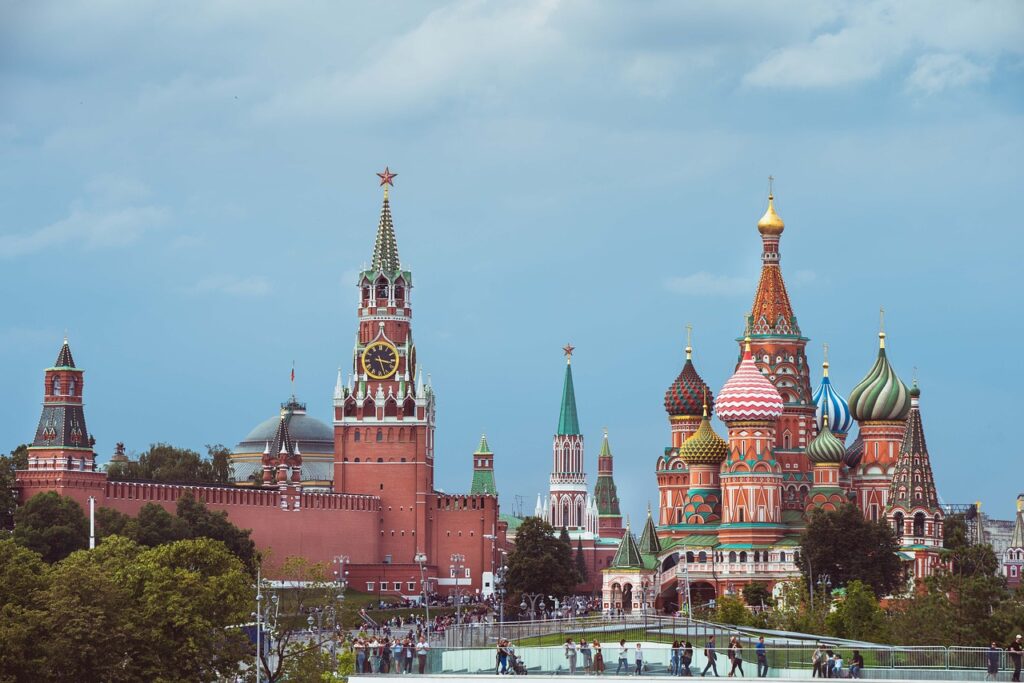Russia’s currency, the ruble, continues to slide, significantly affecting both the country’s economy and President Vladimir Putin’s ability to sustain his war efforts in Ukraine. On Tuesday, the ruble fell even further, surpassing 105 rubles to the dollar—a low not seen since the spring of 2022, just after Russia’s invasion of Ukraine. As the ruble loses value, it becomes an increasingly serious problem for Putin and his war economy.
The Ruble Hits Record Lows Amid Economic Strain
In 2024, the ruble has seen a dramatic 17% drop against the US dollar, positioning it as one of the weakest currencies in the world. The ruble has also suffered considerable losses against the euro and the Chinese yuan, falling more than 11% against the euro and 15% against the yuan since the start of the year. Multiple factors contribute to the ruble’s rapid devaluation, including shrinking revenues from energy exports and mounting pressure from new US sanctions, particularly those targeting Russia’s Gazprombank.
The Ruble’s Weakness: A Double Blow to Russia’s War Economy
The ruble’s ongoing weakness is particularly damaging for Russia’s war economy. The depreciating currency makes imports more expensive while further inflating domestic prices. Inflation in Russia surged to 8.5% in October, more than double the target set by the country’s Central Bank. To combat this, the Central Bank raised the key interest rate to 21%, with potential further hikes looming in December. However, the Central Bank’s previous projections for a decline in inflation by 2025 are now at risk as the ruble continues to weaken.
As inflation increases, ordinary Russians are already feeling the effects. The price of basic goods, such as potatoes, has skyrocketed by 64% since January. Butter prices have surged by 27.5%, and the costs of essential items like bread, milk, and chocolate have also risen sharply. This dramatic increase in prices is placing a heavy burden on consumers, further deepening the economic hardship many are facing.
Rising Interest Rates: A Threat to Russian Businesses
Another significant challenge facing Russia is the high interest rates, which are putting immense strain on businesses. With borrowing costs at record highs, many companies are struggling to stay profitable, and some may be forced into bankruptcy. Sergei Chemezov, CEO of Rostec, a major defense contractor, criticized the high interest rates, warning that they are “eating up” business profits. This pressure is contributing to growing discontent among Russian businesses, many of which are already grappling with financial instability.
Sanctions Tighten the Economic Noose
The ruble’s decline and inflationary pressures are exacerbated by Western sanctions, which continue to isolate Russia from the global financial system. Recently, the United States imposed new sanctions on Gazprombank, the last major Russian financial institution that had not yet been targeted. Gazprombank plays a key role in facilitating military purchases and payments for Russia’s war effort. As these sanctions intensify, it becomes increasingly difficult for Russia to finance its military activities or conduct business with foreign entities.
Struggling to Fund the War Effort
Russia has relied heavily on foreign currency reserves and income from oil and gas exports to fund its war in Ukraine. However, the ruble’s sharp decline and the continued tightening of sanctions are making it harder for Putin to sustain his military campaign. The combination of inflation, currency devaluation, and sanctions is straining Russia’s financial system and threatening the stability of the economy.
Conclusion: Russia’s Economic Future Remains Uncertain
As the ruble continues to weaken and inflation remains high, Russia’s war economy faces an increasingly uncertain future. The combination of rising prices, the ruble’s devaluation, and the impact of international sanctions are putting immense pressure on both consumers and businesses. With no clear resolution to the war in sight, Putin’s ability to maintain financial stability and fund his military efforts is becoming more and more precarious.


